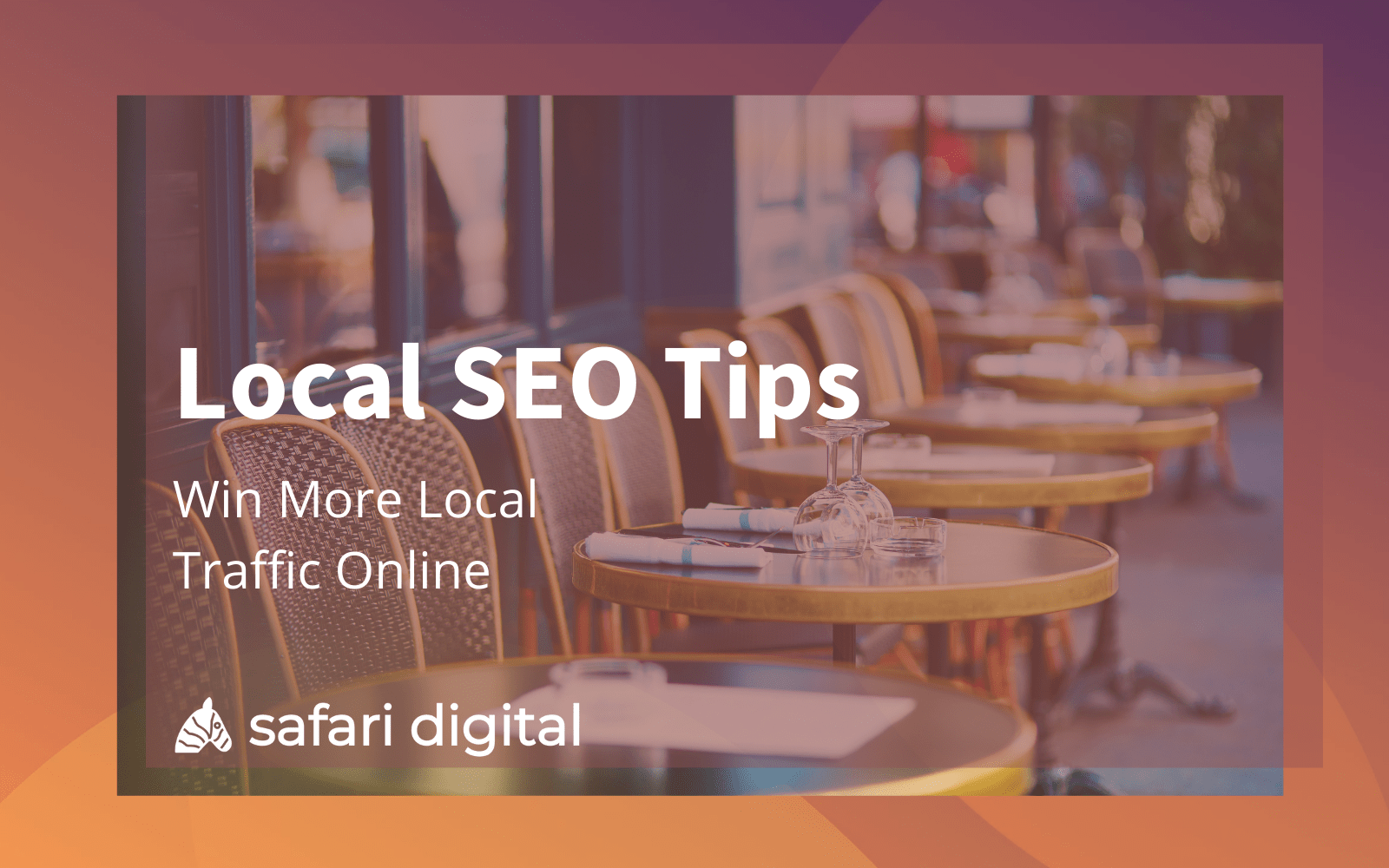
Local SEO tips that will increase your rankings and improve the quality of your leads in 2022.
Local SEO is a powerful lead generator for small and medium business. In 2022, 97% of customers search online for a local business. Local search statistics reveal that 54% consumers do this at least once a month, while 12% search for a local business every day.
From that search, 72% of people will visit a store within 8km of where they are. Whether you’re an independent small business, a service-based business, or a local business without a storefront, local SEO is the key to driving more people to your store.
If your business isn’t optimised for local search, you could be missing out on more than 70% of potential customers. In short, if you want to stay relevant to your customers, local SEO is critical.
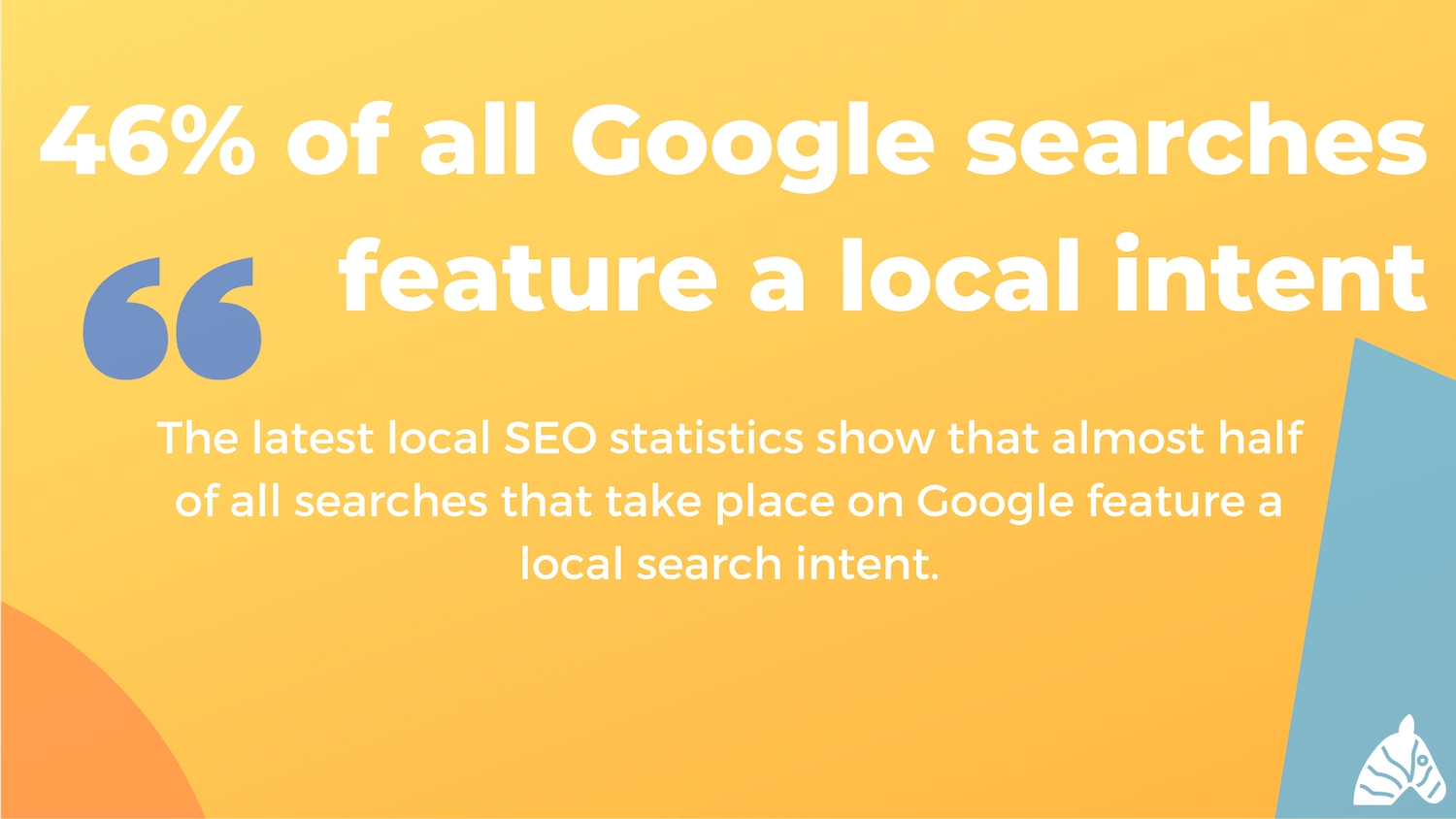
Google is getting smarter; it is now easier than ever to attract users by location. Not sure how to start your local SEO efforts? We’ve compiled 7 Local SEO tips to get you started on your road to local visibility.
By the end of this guide, you should have a better understanding of how local SEO can shape the way that your potential customers interact with your business.
First things first. What is Local SEO?
Local SEO is much the same as regular search engine optimisation, but with an added emphasis on the geographical component. Instead of trying to rank for general search terms related to the goods or services that your business is offering, Local SEO puts an emphasis on ranking for search terms that drive local traffic directly to your business.
Let’s take a look at these two examples:
Example 1:
“Nissan Service”
Example 2:
“Nissan Servicing in North Sydney”
There’s no point in ranking #1 for “Nissan Servicing Melbourne” if your Nissan Service Centre is in North Sydney. Searchers using geographically specific search terms such as ‘Nissan Servicing in North Sydney’ are not interested in results that appear outside of this area. Sure, if you’re a Nissan Mechanic in Melbourne, you can probably game the system and figure out a way to rank on page 1 for this search term, but what’s the point?
Traffic without relevancy doesn’t drive business. Local SEO is about driving local, highly-motivated traffic to your business.
Local SEO Tips for More Traffic
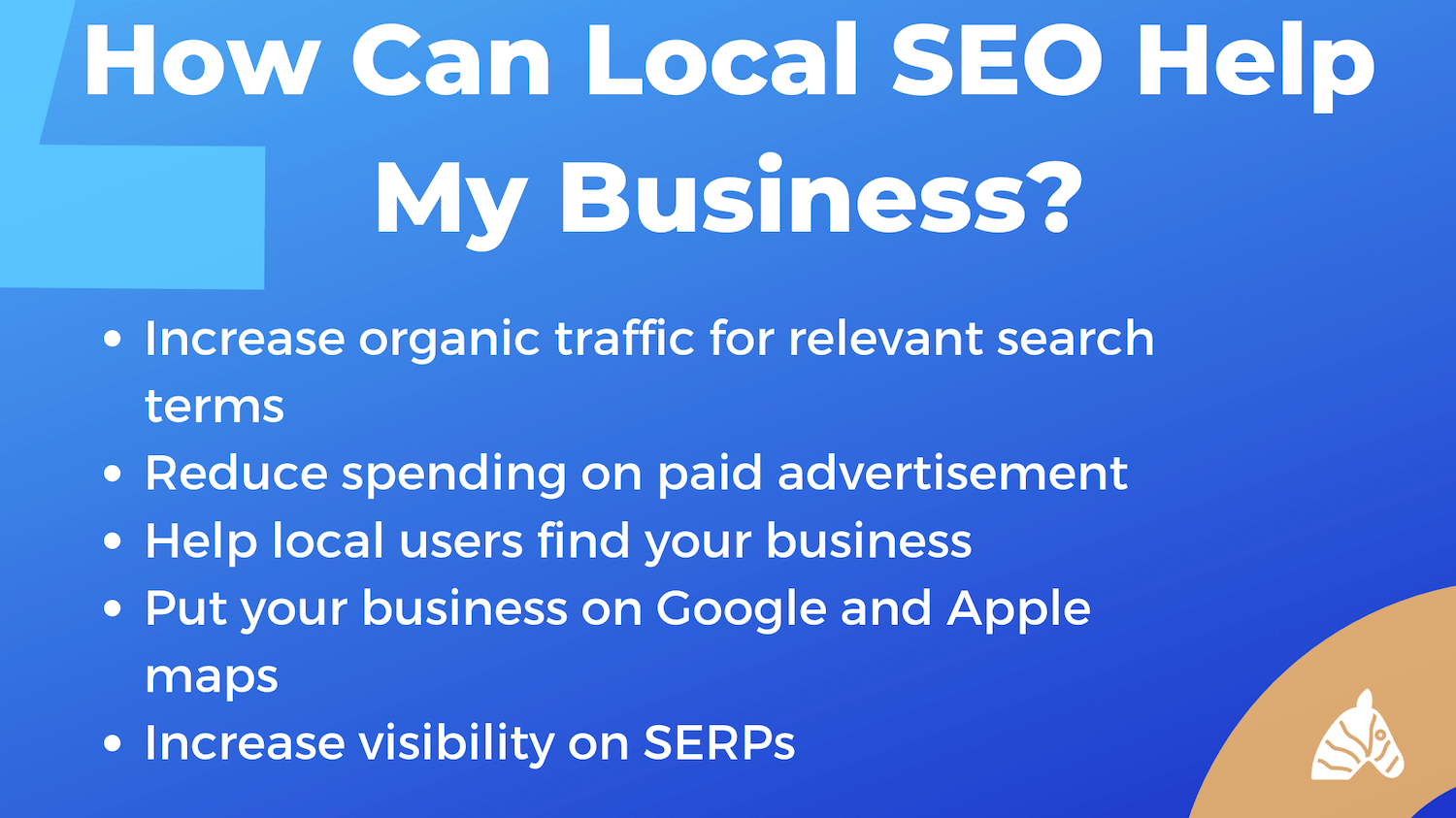
- Local SEO will increase organic traffic for highly relevant search terms.
- A local SEO campaign can dramatically reduce spend for competitive PPC keywords (AdWords, Facebook Advertising, Affiliate Advertising etc.)
- Local SEO helps local users with high purchase intent to find your business.
- Local SEO strategies ensure your business is visible in on Google Maps, Apple Maps and other popular navigational Apps that people use to find local business.
With that in mind, let’s get started on 7 tips for implementing effective local SEO strategy today.
#1: Local Keyword Intent
Keyword intent is one of the most important aspects to consider when targeting keywords for your Local SEO campaign. When it comes to choosing the right keywords for local SEO, the most important thing to consider is: “What audience am I trying to attract to my website?”.
There are three kinds of SEO intent to consider when planning for your local SEO campaign. Each of these categories will provide information about the searcher that will form the basis for the kind of information that should be served.
Local SEO keywords are most commonly associated with “Transactional Intent”. These keywords are considered the holy grail in organic marketing. Sometimes referred to as “buy now keywords”, transactional intent keywords have a very high conversion rate and are responsible for driving sales and generating new leads for your business.
While many SEO strategies are based around ranking sites for competitive, high-value keywords, there is an overlooked ROI in local SEO. Despite relatively low search volumes, local searches often carry a lot more intent and can deliver valuable traffic to your website.
#2: Create Local Content
Providing good local content directed at solving problems for your target market will increase the value of your local SEO campaign. If your content serves to help your target audience and give them valuable resources and information, this will increase the overall effectiveness of the content.
There is no point in churning out average content to simply tick a box. In order to make an impact on local SEO, the content must be well-written and geared towards helping the local audience.
Local content may be in the form of informative blog posts, infographics, guides, videos or any type of content that targets a local search term.
#3: Conduct Local Link Building
Local link building is the practice of working with other websites in your local area to link back to your site. In a general SEO campaign, link building efforts are typically directed towards getting high authoritative domains to link back to the site. While these links are very powerful and will make for a nice backlink profile addition, they are not always realistic for small to medium businesses. For instance, if you’re a local Roof Repair contactor, the changes of your website receiving a backlink from a high-authority is news site is very low – and, to be frank, a little fishy if you do. On the other hand, receiving links from local publications or news outlets is far more natural and increases your legitimacy within a local area.
Local link building is geared towards getting relevant links based on the locality of the business. Local links are great for establishing geographical relevance and a healthy local backlink profile. Rather than focusing on industry specific link building, local link building is all about creating a presence within the local market.
The first step to building a local backlink profile is setting up your business with local citations. Every state, area, and region will have their own set of online directories that you can easily add your business and website information to. Adding your website and basic business information to directories is a fantastic way to provide consistent and trustworthy information on your business to both users and search engines. There are plenty of people who discredit the importance of local citations, however, in 2022 they are still an extremely important (and simple) way to diversify your link profile.
Next, find ways to work with your local market. Local search can be used to find potential opportunities for your content on a local blog or news source. Use outreach methods to get in touch and establish connections with websites where you might be able to exchange content for a link. While these websites may not have the same authoritative power as larger websites, their influence in the local market will have a relevant and large impact on your local SEO. In addition, these links may offer referral traffic and business.
#4: Actively Seek Out Google Reviews
Google reviews are a great way to showcase a business to the local market. Google reviews also play an important role in consumer decision making.
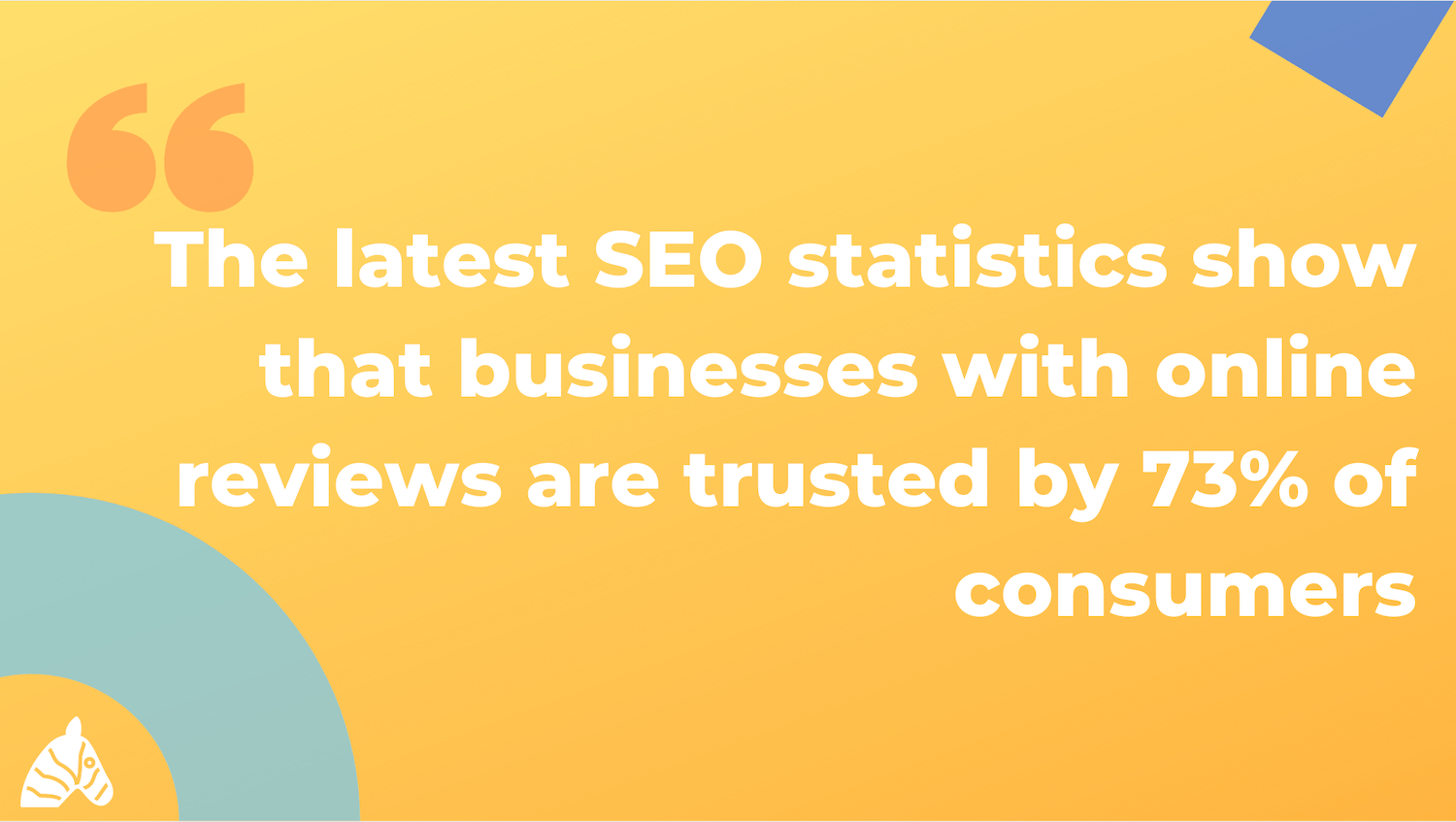
Google my business reviews have a direct effect on search rankings, as well as consumer purchase decisions. Reviews represent an unbiased opinion about a business. The information is crowdsourced, from real people who have tried the services themselves. As such, it should come as no surprise that reviews are a factor in Google’s local ranking results pages. The more people are raving about your business, the more Google will take that as a sign of an authoritative and important website in your local area.
One of the simplest ways to get a positive Google review is to ask for it. If you’re in contact with local customers that are satisfied with your services, generally they will be more than happy to leave your business a positive review. Actively seeking out Google reviews is an effective yet easy way to improve your local SEO.
#5: Keep Your GMB Listing up to Date with New Content
Google My Business is one of the most underrated local SEO tools available to businesses. If you haven’t claimed your GMB listing, you’re missing out on enormous local and industry search potential. Furthermore, updating and optimising your listing; utilising GMB to its full potential allows your business to flourish with Google’s help and guidance.
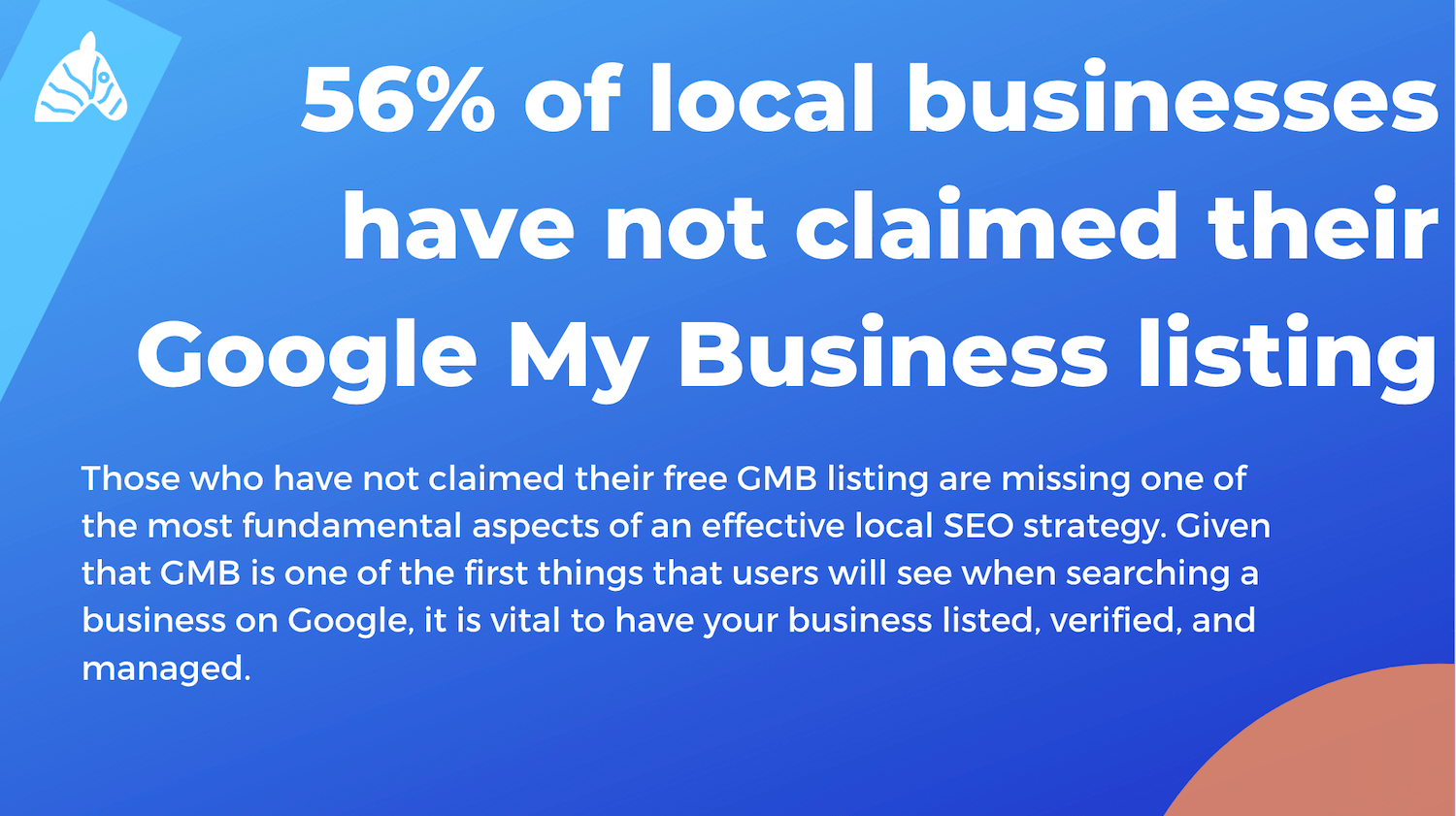
GMB works by connecting you with people in your area. When searchers go looking for a service your business can provide, your listing will be active in both search and maps. Ensuring your information is up to date is crucial to the success of your GMB listing. If users receive incorrect or contradicting information, this will decrease the trustworthiness of your site.
A tool offered by GMB that is constantly overlooked, is Google posts. Your GMB account allows your business to provide recent and relevant content to your listing to users searching your business. Google posts provide an opportunity to publish relevant and fresh content with insightful information to the local area.
Google posts are all about local engagement and having genuine interactions with potential customers in your area. While published Google posts does have a minor impact on ranking factors, the importance is on establishing connections with potential local customers.
#6: Be Consistent with your NAP Listings
NAP stands for name, address, and phone number. NAP consistency is having your company’s name, address, and phone number listed the same way across the web, from your website to your directory listings, to your social media profiles and even band mentions. NAP consistency is crucial to getting both users and search engines to identify the correct location of your business.
Search Engines value consistency. That means formatting and spelling your details the same way, each time they are listed. When your NAP is consistent, the identical information will show up on each platform, helping search engines to understand who you are, what your business does, and how users can find and reach your business.
When users come across a business listed under multiple names, addresses, and phone numbers, they are left confused. Rather than going to the extra effort of trying to find the correct information, they’re more likely to abandon in search for a company with consistent and concise contact information. Consumers have less trust and confidence in business listings with varying and conflicting details. Having this information consistent and clear is vital to the success of local SEO efforts.
#7: Add Location Pages to Your Website
A local landing page is a web page designed to attract local customers. Well-designed landing pages will surface on SERPs for local searches that contain terms relevant to your business.
Rather than lumping your service pages onto one location page, adding multiple location pages presents an opportunity to expand your reach and increase location density. By having dedicated location pages for each service, you’re opening up the door to potential rankings for each location page.

For maximum effect with location landing pages, each page should be appropriately optimised. Firstly, the content on each page should be constructed to be as informative and relevant to the location as possible, while still signalling to search engines the main purpose of it (the service). While it might be tempting to copy and paste the content for each location service page, creating entirely unique copy will prevent issues with duplicate content.
Secondly, each URL should follow a simple pattern and structure to make it easy for both search engines and users to track. Finally, optimising each page’s title tags, call to action, and H1 & H2 tags will enrich each page with local strategic SEO.
Creating location landing pages can seem daunting and time exhaustive, however, the benefits of the extended reach and local visibility will prove to be worth every minute.
Wrapping Up
As you’ve probably heard a million times, Google and SEO are both rapidly changing. Google’s changes will always be geared towards providing users with valuable and informative online experiences, and if the stats are anything to go by, customers are searching locally more than ever. Focusing your efforts on a comprehensive local SEO strategy will make for a solid foundation with each new introduction to SEO and Google algorithm updates.
Local SEO is still in its infancy. Less than 30% of businesses tailor their SEO towards local search. Businesses who take action now are going to gain a competitive edge over those who are optimising for generic search terms and neglecting Local SEO. Take advantage of lucrative local searches by implementing these 7 tips of improved local SEO today.







